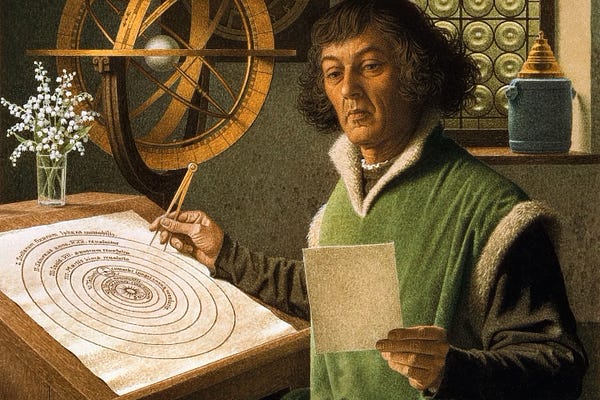
The rotation of the Earth and its relationship to our daylight cycles has fascinated philosophers and scientists for thousands of years. As far back as 470 BCE, ancient Greeks speculated the Earth itself moves, rather than having the rest of the sky revolving around us. In the 10th century CE, Muslim astronomers started building astrolabes and other instruments to measure the movement of the Earth relative to the stars.
The first human depictions of the cosmos date back to 1,600 BCE. A bronze disk found in Northern Europe shows the sun, a crescent moon, and the Pleiades star cluster, and written records from the Babylonians record the position of celestial bodies. Arguably the earliest scientific observations, these records make astronomy the oldest known science.
Although humans have observed the stars for thousands of years — some early theories proposed that the Earth moved — the geocentric theory remained dominant in Europe until the work of Nicolaus Copernicus in the 1500s, proving the Earth does actually revolve around the sun. Following his work, others tried to prove the rotation of the Earth through various experiments. While the theory became accepted by the mid-1800s through observation of astronomical movements, it was Foucault’s pendulum that demonstrated, visibly and spectacularly, the rotation of the Earth.
Foucault first conducted his pendulum experiment in the Paris Observatory, then the Panthéon, where it remains an impressive centerpiece today. While they vary in size, pendulums work best with long lines, typically between 40 and 100 feet. A heavy, swinging lead bob is suspended at the end of a line. As the bob swings back and forth, it slowly moves in a clockwise direction as the Earth rotates under it.
